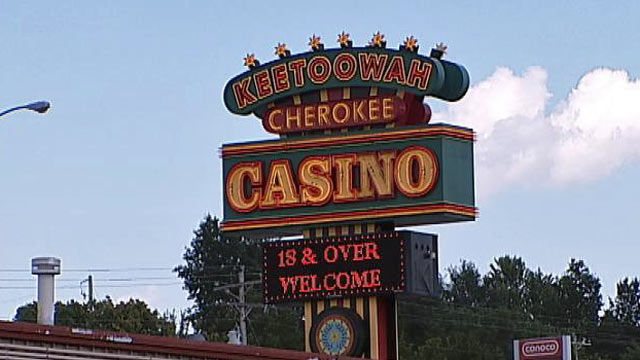By Peter Roff • The Hill
 When Congress passed the Indian Gaming Regulatory Act in 1988 it was with the intention that a framework for the green-lighting of Indian casinos on historically tribal lands could continue.
When Congress passed the Indian Gaming Regulatory Act in 1988 it was with the intention that a framework for the green-lighting of Indian casinos on historically tribal lands could continue.
In a lot of places it has worked well. In others it has failed to live up to expectations. Some people are still getting rich but the overwhelming poverty the casino revenues were supposed to alleviate remains. Nor have they created a limitless stream of wealth. The economic downturn that began with the crash of 2008 affected the gaming industry just as much as the rest of the economy and you don’t have to be Donald Trump to know it’s a bigger “crap shoot” than most people believe.
Since the act went into effect it has generally been left up to the discretion of the U.S. Department of the Interior whether a specific tribe can go into the casino business and how many sites they may operate if they can. During the Bush administration, standards were reasonably rigorous and considerable heft was given to the sentiments of state and local officials. That’s one of the reasons Arizona voters were given the chance to vote on Prop. 202, which is essentially a master plan governing the spread of tribal casinos throughout the state that is scheduled to be in force until 2027.
Tribal leaders agreed with state officials that they would abide by its terms if it passed – and it did. Apparently though the leaders of one of them, the Tohono O’Odham, did so with their fingers crossed. As the Arizona Republic recently editorialized after the facts became known in court the tribe made “a conscious, covert decision well before” Prop 202 was voted on to buy land outside Phoenix with the intention of eventually turning it into a full-scale casino, master plan or no. “In doing so,” the paper said, “tribal leaders opted to foil the spirit of Prop 202, that no additional casinos would be opened in the Valley.”
The whole business is now in court, with the state and several of the other tribes asking that the restrictions on expansion agreed to Prop 202 remain in place. The Tohono O’Odham meanwhile are arguing that the doctrine of “sovereign immunity” means they don’t have to abide by what the courts may decide.
The only place this can be settled then is in the U.S. Congress, where members at the committee level have already given their approval to H.R. 308, the Keep the Promise Act of 2015 which would require all parties to return to the positions they agreed to as ratified by Arizona voters.
The legislation has the support of the governor, many members of the state legislature, and most of the Indian tribes. It is however stuck in Congress for the bizarre reason that its opponents have managed to cast it as an increase in spending based on the Tohono O’Odham’s threat to sue the federal government for $1 billion if it becomes law as recompense for an unconstitutional takings.
The bill requires the federal government to spend no money. To argue it does sounds more like legislative sleight-of-hand coming from a fast-talking K Street lobbyist but it’s been enough to derail the only thing that for the moment can set things right in Arizona. Hopefully the budgeteers on Capitol Hill will get it right in order to preserve good policy.
It’s not enough that, if the Tohono O’Odham prevail, their success will come at a direct expense of the tribes in the state. It will also put an end to what to this point has been a successful cooperative effort to manage the growth of the gaming industry so that the state and the Indiana tribes come out winners.
As Delbert Ray, Sr., the president of the Salt River Pima-Maricopa Indian Community recently wrote for The Hill’s Congress Blog:
“Tribal gaming is vital to the economic and philanthropic fabric of Arizona. But this success is not an accident. Tribal leaders and Arizona state government officials put together a 25-year master plan that focused on maximizing the benefits of tribal gaming … built on three simple principles: 1) gaming would be limited and highly regulated; 2) revenue would be shared with the State of Arizona and local governments; and 3) there would be no additional gaming facilities in the Phoenix metropolitan area until 2027.”
These principles were adopted into law by the voters. They were agreed upon by state and tribal leaders. One tribe should not be allowed to hide behind the doctrine of “sovereign immunity” to do an end run around everyone else. Congress can step in, is indeed trying to step in to set things right but is for the moment being blocked by a procedural impediment. The practice of deferring to the states on the issue is a good one that may be broken by the Arizona case. Unless it can be fixed it may be time to reconsider the whole idea of Indian gaming with Congress taking a much more aggressive role in deciding when and where tribal casinos can be allowed to operate the expense of local communities. It would be a necessary step but one decidedly in the wrong direction as far as overall policy is concerned.
Roff is a senior fellow at the Washington. D.C.-based Frontiers for Freedom, a public policy organization concerned with budget policy and property rights.